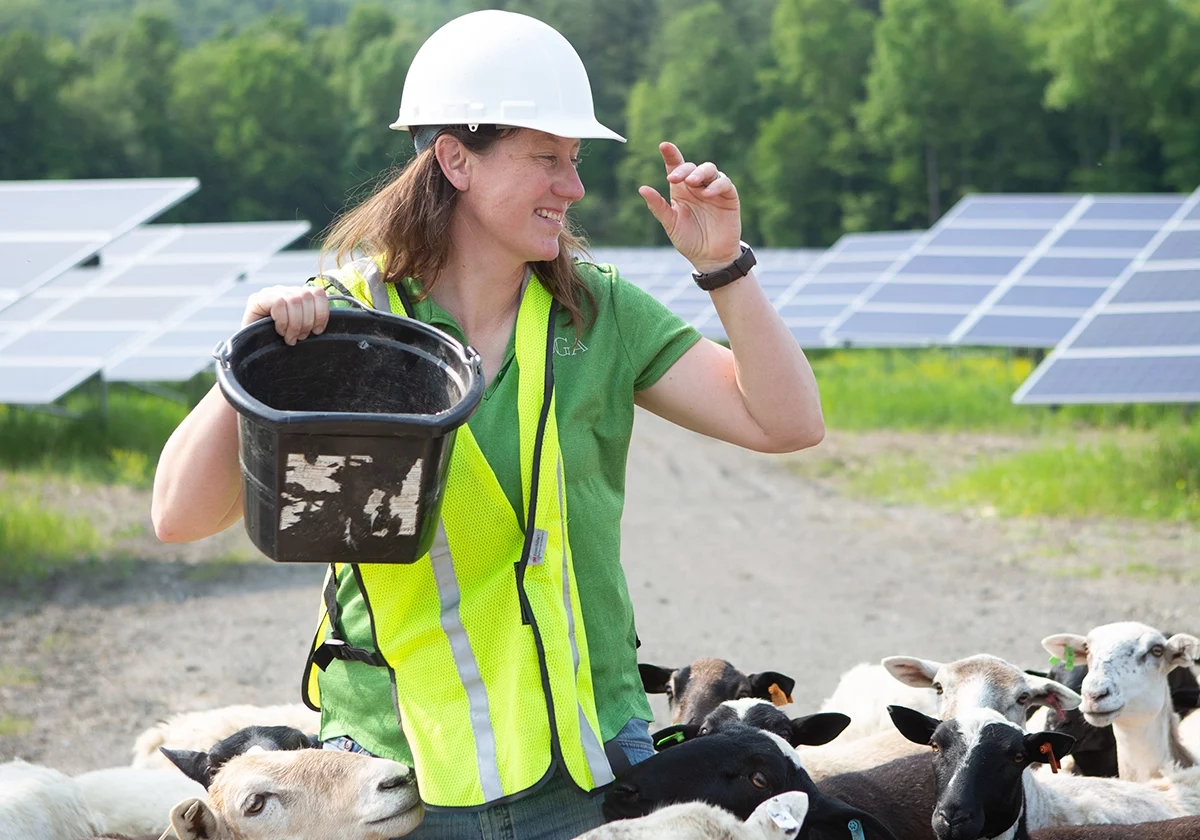ASGA Call #62 Replay: Unlocking the Future of Agrivoltaics in New Jersey with Rutgers University
We kicked 2023 off with an in-depth discussion of the agrivoltaics programs at Rutgers University and the agrivoltaics situation in New Jersey generally.
David Specca, Dr. Mike Westendorf, Dr. A. J. Both, and Dr. Clint Burgher from Rutgers University discussed the exciting agrivoltaics and grazing research projects that the university’s NJ Ag Experiment Station (NJAES) is developing with funding from the state’s recently passed Dual-use Solar Act (2021).
The team discussed their planned animal and plant research as well as go into the types of PV systems they’ll employ and how they’re setting up the research sites.
They also talked about the opportunities and challenges for Agrivoltaics in New Jersey more broadly.
More about Agrivoltaics Research at Rutgers:
The team at Rutgers is developing projects at multiple solar farm sites and plans to research growing high-value crops such as soybeans, hay, and corn under a single axis tracker, as well as vegetable and nursery crops.
At the sites, they plan to experiment with solar grazing, including grazing beef cows with vertical bifacial panels.
Through their research, they hope to identify systems that work for multiple types of agriculture. The research program aims to experiment with agrivoltaic systems built high enough to allow for farm equipment operation.
Lean more about the Rutgers agrivoltaics research program and the recently passed dual-use law in NJ here: https://ecocomplex.rutgers.edu/agrivoltaics-research.html
About the Speakers

David Specca is the Assistant Director of Rutgers University’s EcoComplex Clean Energy Innovation Center. His expertise includes identifying and demonstrating technologies and practices that will help the agricultural industry become more sustainable, especially hydroponic and aquaponic applications for rural and urban agriculture, also identifying and quantifying waste-based clean energy feedstocks and technologies. His experience, from a production agriculture perspective, gives him a unique background for assisting the many startup businesses that come to the EcoComplex. He was also part of the NJAES team that produced the “Assessment of Biomass Energy Potential in NJ”. Dave earned a BS in Horticulture and an MS in Plant Science from Rutgers University.
Dr. Mike Westendorf is the Extension Specialist for Animal Production in in the Department of Animal Sciences at Rutgers. As an Animal Sciences Extension Specialist of Rutgers, Dr. Westendorf conducts research related to animal agriculture and create outreach and Extension programs that serve the needs of the state’s farmers – both livestock and equine. Maintaining economic and environmental sustainability in a densely populated state poses challenges for farmers. To address these challenges, he has developed technical support programs and conducted applied research in the areas of animal waste management, food waste and by-product utilization, and optimization of animal growth. Dr. Westendorf’s work has been done in collaboration with Rutgers Cooperative Extension faculty and staff as well as colleagues in the State departments of Agriculture and Environmental Protection, USDA Natural Resources Conservation Service (NRCS), and the NJ Farm Bureau.
Dr. A.J. Both is the Extension Specialist for Controlled Environment Ag in the Department of Environmental Sciences at Rutgers. Trained as an engineer with degrees from Wageningen University (1988) in the Netherlands and Cornell University (1995), Dr. Both now serves on the faculty in the Department of Environmental Sciences at Rutgers University as Professor and Extension Specialist. His research focuses on methods and systems to provide the optimum growing environment in protected plant production facilities. He has had a long interest in hydroponics, supplemental lighting and the use of energy in agricultural systems. His research includes projects in growth chambers, greenhouses and high tunnels. He conducts industry outreach through presentations at grower meetings, articles for trade journals, and collaborations with colleagues across the US. He teaches several undergraduate and graduate classes in different curricula at the School of Environmental and Biological Sciences.




